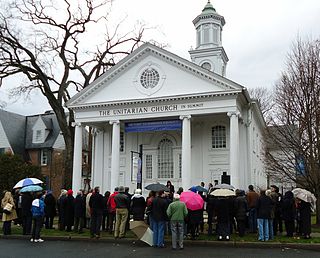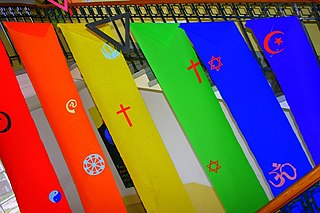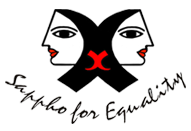See more
| | This section is empty. You can help by adding to it. (January 2022) |
| Categories | LGBT |
|---|---|
| Founded | 1991 |
| Final issue | 2000 |
| Country | India |
| Based in | Kolkata |
| Language | English, Bengali |
Pravartak (later renamed Naya Pravartak) was an early LGBT magazine published in Kolkata, India, published from 1991 to 2000, in English and Bengali. [1] [2] [3] [4] [5] [6]
From 1991 to 1992, there were three issues published by a small group of individuals. [1] [3] The original magazine was created on an old Remington typewriter, late at night so no one would hear, and distributed through cyclostyle. [1] [6] [7] [8]
It was rebooted in 1993 by Counsel Club, a newly-formed support group for gender and sexual minorities. [3] [8] [9] Counsel Club published another six issues between 1993 and 1996, and the magazine continued on until the final issue published in 2000, when it was a Bengali tabloid. The magazine was renamed Naya Pravartak in 1995, and that name was used until the publication ended in 2000.[ citation needed ]
The magazine was distributed almost entirely through private circulation, via word of mouth among LGBTQ people, community institutions and events, and via the Counsel club meetings. [3] A few copies were distributed through Classic Books and Seagull Bookstore in Kolkata, and People Tree in New Delhi. [3]
Writer Soumitra Das described the magazine and its impact in The Telegraph : [4]
It carried analytical articles, short stories, poetry, first person stories and interviews - whatever was happening in the LGBT world. Its content was in English and Bengali (occasionally in Hindi as well). Sexual health work and gender, as well as sexuality and diversity were its primary concerns. Counsel Club managed to bring together hundreds of people. One important discussion in Pravartak was on how Bengali literature reflected the LGBT world. In the pre-Internet era, Pravartak was like a connecting link for queer people spread across India and abroad. [4]
According to India Today, Naya Pravartak was Calcutta's "hottest-selling media offering to gays," which "offers advice on safer sex, fiction, poetry, gay conferences, the gay underground, and contacts." [5]
The Varta online magazine, established in 2013, was co-founded by one of the original publishers of Pravartak, and has been described as being a continuation of Pravartak. [4] [7]
| | This section is empty. You can help by adding to it. (January 2022) |

Lesbian, gay, bisexual, transgender and queer (LGBTQ) movements are social movements that advocate for LGBTQ people in society. Although there is not a primary or an overarching central organization that represents all LGBTQ people and their interests, numerous LGBT rights organizations are active worldwide. The first organization to promote LGBT rights was the Scientific-Humanitarian Committee, founded in 1897 in Berlin.

SoumitraChatterjee was an Indian film actor, play-director, playwright, writer, thespian and poet. He is regarded as one of the greatest and most influential actors in the history of Indian cinema. He is best known for his collaborations with director Satyajit Ray, with whom he worked in fourteen films.
Homosexuality in India is socially permitted by most of the traditional native philosophies of the nation, and legal rights continue to be advanced in mainstream politics and regional politics. Homosexual cohabitation is also legally permitted and comes with some legal protections and rights.

Unitarian Universalism, as practiced by the Unitarian Universalist Association (UUA), and the Canadian Unitarian Council (CUC), is a non-Creedal and Liberal theological tradition and an LGBTQ affirming denomination.

Lesbian, gay, bisexual, transgender and queer (LGBTQ+)-affirming religious groups are religious groups that welcome LGBT people as their members, do not consider homosexuality as a sin or negative, and affirm LGBT rights and relationships. They include entire religious denominations, as well as individual congregations and places of worship. Some groups are mainly composed of non-LGBTQ+ members and they also have specific programs to welcome LGBTQ+ people into them, while other groups are mainly composed of LGBTQ+ members.

Lesbian, gay, bisexual, and transgender (LGBTQ) people in India face legal and social challenges not experienced by non-LGBT people. There are no legal restrictions against gay sex or gay expression within India. Same-sex couples have some limited cohabitation rights, colloquially known as live-in relationships. However, India does not currently provide for common law marriages, same-sex marriage, civil unions, guardianship or issue partnership certificates.

Lesbian, gay, bisexual, and transgender (LGBTQ) people in Bangladesh face widespread social and legal challenges not experienced by non-LGBT people.

Lesbian, gay, bisexual, and transgender (LGBTQ) people in the Tibet encounter specific legal and social challenges not faced by non-LGBT residents. The Tibetan Plateau, spanning areas under the sovereignty of both the People's Republic of China and the Republic of India, has variations in the legal treatment of LGBT individuals between these nations. Since 1997 in China and 2018 in India, all forms of same-sex sexual activities were legalised. However, in both nations, same-sex couples lack the rights to marry or adopt children, and there is no provision for common law marriages, same-sex marriage, civil unions, or issue partnership certificates.

LGBTQ people are well documented in various artworks and literary works of Ancient India, with evidence that homosexuality and transsexuality were accepted by the major dharmic religions. Hinduism and the various religions derived from it were not homophobic and evidence suggests that homosexuality thrived in ancient India until the medieval period. Hinduism describes a third gender that is equal to other genders and documentation of the third gender are found in ancient Hindu and Buddhist medical texts. The term "third gender" is sometimes viewed as a specifically South Asian term, and this third gender is also found throughout South Asia and East Asia.

India has a long and ancient tradition of culture associated with the LGBTQ community, with many aspects that differ markedly from modern liberal western culture.
Humsafar Trust is an NGO in Mumbai that promotes LGBT rights. Founded by Ashok Row Kavi, Suhail Abbasi, and Sridhar Rangayan in 1994, it is one of the largest and most active of such organisations in India. It provides counselling, advocacy and healthcare to LGBT communities and has helped reduce violence, discrimination and stigma against them. Humsafar Trust is the convenor member of Integrated Network for Sexual Minorities (INFOSEM).
Gaylaxy is an Indian lesbian, gay, bisexual and transgender (LGBT) magazine. The magazine is based in Kolkata.
This is a timeline of notable events in the history of non-heterosexual conforming people of South Asian ancestry, who may identify as LGBTIQGNC, men who have sex with men, or related culturally-specific identities such as Hijra, Aravani, Thirunangaigal, Khwajasara, Kothi, Thirunambigal, Jogappa, Jogatha, or Shiva Shakti. The recorded history traces back at least two millennia.
Chennai has LGBTQIA cultures that are diverse concerning- socio-economic class, gender, and degree of visibility and politicisation. They have historically existed in the margins and surfaced primarily in contexts such as transgender activism and HIV prevention initiatives for men having sex with men (MSM) and trans women (TG).
Agniva Lahiri was an Indian LGBTQ social activist from Kolkata, who was active in promoting the causes of the transgender members of the community. Lahiri founded People Like Us (PLUS) Kolkata, a Non Governmental Organization, in 2001 and served as its executive director. Lahiri was also associated with Network of Asia Pacific Youth as a coordinator for policy research and international advocacy.

Good As You is a support and social group for LGBTQ people and others questioning their gender and sexuality in Bangalore. It started in 1994 and is one of the longest surviving groups that advocates equal rights for homosexuals and other gender and sexual minorities in Bangalore.

Rohit K. Dasgupta is an Associate Professor of Gender and Sexuality at the London School of Economics and Political Science and a British Labour Party politician. Prior to this he was a Senior Lecturer in the School of Culture and Creative Arts at the University of Glasgow where he remains as an Honorary Senior Research Fellow. In 2018 he was elected Councillor in the London Borough of Newham for the Canning Town South Ward. He was re-elected for the same ward again in 2022 He contested the Parliamentary seat of East Hampshire for the Labour Party in 2017, coming second with an increase of 7% vote share. He is also Secretary of the Newham Branch of the Fabian Society. In 2019 he was selected as an MEP candidate for the South East region but failed to get elected. Dasgupta is also a member of Labour's National Policy Forum and sits on the Work, Pensions and Equality Policy Commission.
Kolkata Rainbow Pride Walk (KRPW) is the oldest pride walk in India and South Asia. The first march in Kolkata was organised on 2 July 1999. The walk was called The Friendship Walk. Kolkata was chosen as the first city in India to host the march owing to Kolkata's history of movements for human and Political Rights. Currently, Kolkata Rainbow Pride Walk is organised by the Kolkata Rainbow Pride Festival (KRPF).

Sappho for Equality is an organization based in Kolkata, India, working for the rights of lesbians, bisexual women, and trans men in Eastern India.
Bombay Dost, India's first registered magazine for Lesbian Gay Bisexual Transgender (LGBTQ) community. It was founded by Ashok Row Kavi in the year 1990. It is a gay magazine supporting gay people, to address issues faced by transgender community. The aim of the magazine was to mobilize the gay community and articulate the rights of gay people. From 1994,’ Humsafar Trust' a non-profit organization started to publish the newsletter. The periodicals were shut down in the year 2002 and started to republish in 2009.